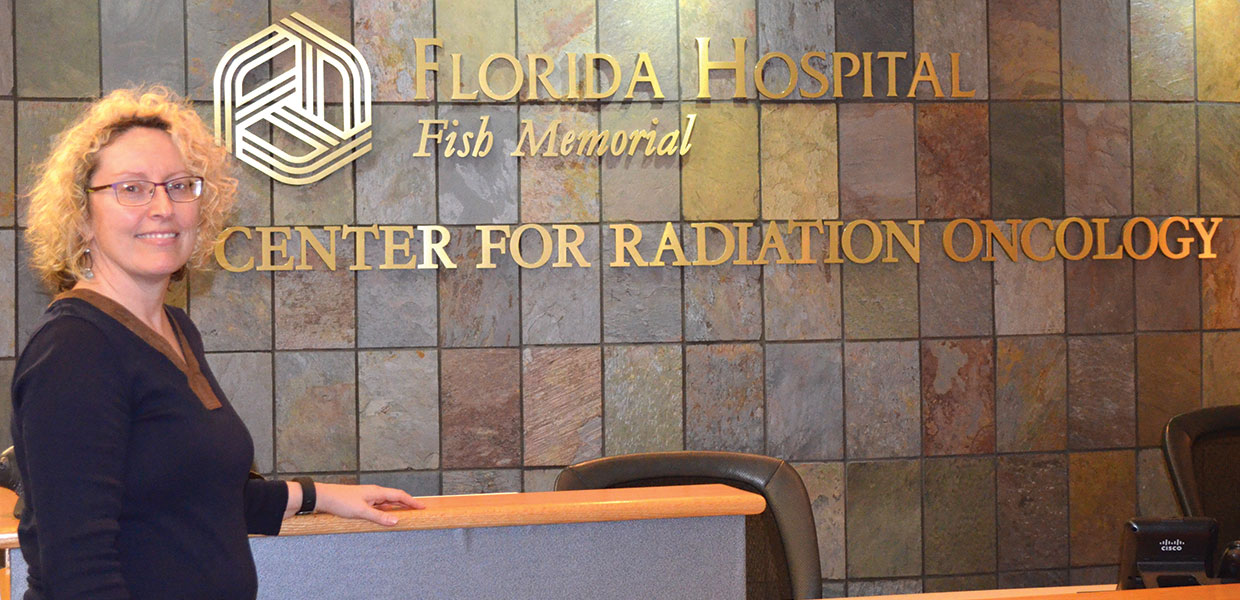The award recognizes the hospitals’ support of colorectal cancer screenings.

The Florida Hospitals in Volusia and Flagler counties compose the Adventist Health System East Florida Region, one of only 22 hospital systems in Florida to receive a Colorectal Cancer Partnership Award, and a $7,500 grant from the American Cancer Society. Florida Hospital will use these funds to host colorectal cancer education events and symposiums throughout the year.
Radiation oncology medical physicist Trina Lynd jumped at the opportunity to champion this project at Florida Hospital Fish Memorial and Florida Hospital DeLand. Her younger brother, Shawn Caudill, recently passed away from colorectal cancer at the age of 49 years old — one year shy of the recommended age for regular screenings for colorectal cancer.
“Our family doesn’t have a history of colon cancer, so his diagnosis was definitely a shock,” Lynd said. “He probably should have seen a doctor about a year before he did, but his symptoms were so vague and he was so young; colorectal cancer just wasn’t something on our radar.”
Lind is excited to help educate the local community about the signs and symptoms of colorectal cancer, as well as the importance of regular screenings. “On a national scale, there isn’t enough education or awareness about this disease, which is far too common,” she said. “One in 20 Americans will be diagnosed with colorectal cancer in their lifetime, so it certainly is something we see often in our Cancer Centers.”
In addition to receiving the American Cancer Society’s Colorectal Cancer Partnership recognition, the East Florida Region has committed to the American Cancer Society’s “80 Percent by 2018” pledge, a national campaign that aims to ensure that by 2018, 80 percent of American adults, age 50 and older, undergo regular screenings for colorectal cancer.
“Colorectal cancer is a major public health concern. In this year alone, it is estimated that colon cancer will be the second leading cause of cancer deaths in Florida, when men and women are combined, yet it can be prevented or detected at an early stage,” said Imee Unto, East Florida Region cancer services administrator. “A regular colorectal cancer screening is one of the most powerful weapons we have against colorectal cancer. It can take as many as 10 to 15 years for a polyp to develop into colorectal cancer. Regular screenings can prevent many cases of colorectal cancer altogether by finding and removing polyps before they have the chance to turn into cancer.”
Nationally, more than 1,000 organizations have committed to the American Cancer Society’s “80 Percent by 2018” pledge and are working toward this shared goal.
“Major strides have been made with screening rates in Florida, but we can do better,” said Megan Wessel, vice president health systems, Florida Division of the American Cancer Society. “Our partnerships across the state are helping to improve those numbers, and we are grateful for the collaboration.”
Adventist Health System | April 2017



Comments are closed.